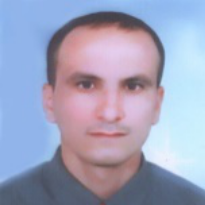
Mohammed H. Ali
Work place: Al-Turath University College/ Department of Biomedical Engineering /Baghdad, 10001, Iraq
E-mail: mohammed.hussain@turath.edu.iq
Website:
Research Interests: Computer Networks, Coding Theory, Cryptographic Coding, Cellular Automata
Biography
Mohammed Hussein Ali He is a Lecturer at Al-Turath University College, Biomedical Engineering Department. Hold his B.Sc degree from the College of Engineering, University of Baghdad, in 2004,and obtained his Master’s degree in Electronics and Communication Engineering at 2010 from Al- Mustansiriya University ,in 2010 and he is currently a Ph.D. Student in Communications Engineering at Al- Mustansiriya University. His areas of interests are cellular networks communications, coding techniques, multicarrier systems and signal processing for wireless communications. He is an author of many research studies published at national and international journals as well as conference proceedings.
Author Articles
Design and Implementation of Adaptive Universal Filtered Multi Carrier for 5G and Beyond
By Mohammed H. Ali Noora H. Sherif
DOI: https://doi.org/10.5815/ijcnis.2022.06.02, Pub. Date: 8 Dec. 2022
The current generation (5G) mobile communication system promises to accommodate a wide range of new applications and use scenarios, resulting in more flexible and unified connection. To satisfy the required criteria, the current waveform was replaced with new UF-OFDM, which combines the advantages of OFDM with enhanced spectral characteristics and greater resilience against time-frequency misalignments. However, its biggest disadvantage is the transmitter's computational complexity, which may be up to two hundred times that of OFDM if there is no reduction in complexity. The majority of current research on unique waveforms has focused on filter modification or performance enhancement strategies. UFMC with the use of adaptive filter (UFMC -FSK) is offered as a revolutionary technique in this study. The filter designed and used to transport information through the index modulation technique. As a result, each UF-OFDM sub band's used filter is chosen, so the data rate is enhanced according to a filter configured depending on original input data bits. The combined Maximum-likelihood (ML) decision metric for each sub band that is calculated at the receiver. Each sub band has a filter as well as data symbols that provide the minimal metric for making decisions are discovered. Furthermore, the bit error rate and power spectrum density are enhanced over the UF-OFDM technique, however there is some trade-off. Overall, the proposed system outperform typical UF-OFDM. Matlab simulations are used to assess the performance of the Adaptive UFMC system.
[...] Read more.Other Articles
Subscribe to receive issue release notifications and newsletters from MECS Press journals